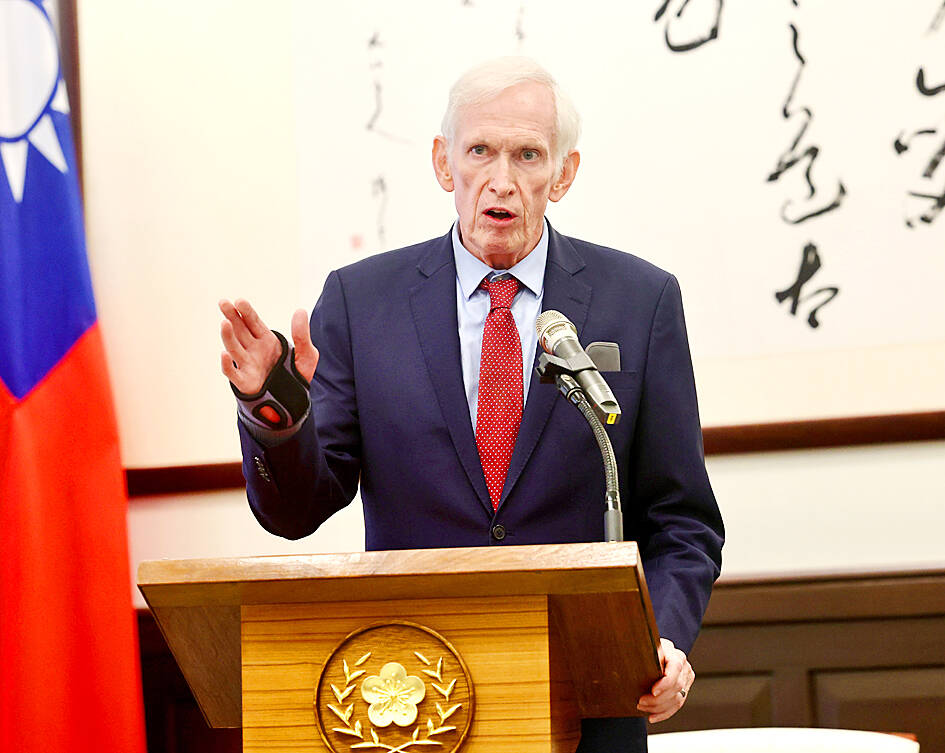President William Lai (賴清德) yesterday emphasized Taiwan’s determination to defend itself and cooperate with other democracies to handle global challenges, in a meeting with former American Institute in Taiwan (AIT) chairman James Moriarty.
The nation is to continue strengthening its defensive capabilities and show its resolve to defend itself and democracy, he was cited as saying by the Presidential Office in a statement.
Taiwan would also maintain its cooperation with the US and other like-minded nations in dealing with global challenges posed by pandemics and climate change, he said.

Former American Institute in Taiwan chairman James Moriarty speaks at the Presidential Office in Taipei yesterday.
Photo: CNA
Lai thanked Moriarty for his support of the nation and contributions to its ties with the US, adding that he hoped the bilateral relationship would be strengthened to defend peace and stability in the Taiwan Strait.
The president welcomed Moriarty’s visit to Taiwan and said that the two have met multiple occasions during his tenures as Tainan mayor, premier and vice president.
Moriarty is counted as a personal friend and a good friend of Taiwan, who expanded the scope of bilateral relations and deepened their development, Lai said.
After departing from the AIT, Morarity continued his contributions to Taiwan by urging Washington to strengthen military cooperation between the two nations, he said.
Lai also thanked the US Congress for implementing the Taiwan Relations Act, the “six assurances” and other promises to Taiwan, which bolstered its defenses against authoritarian expansionism.
Moriarty said his personal feelings for Taiwan and commitment to keeping promises reflect the shared views of the US public.
Taiwan-US relations are based not only on common interests, but also on the two nations’ common values and principles, he said.
Peace and stability are the most important of Taipei and Washington’s mutual interests, Moriarty said, adding that the two must insulate their economies and societies from foreign interference.
Taiwan and the US face numerous internal and external challenges, but Moriarty said he was confident that cooperation and solidarity would continue to strengthen the alliance of democracies.
Moriarty thanked Lai and Taiwanese for his reception, their friendship with the US, and their support of democracy and other common values.
Separately, Minister of National Defense Wellington Koo (顧立雄) said the long-standing and constant view of the government is that war is best prevented by credible deterrence through strength.
He made the comments on the sidelines of a question-and-answer session at the legislature in Taipei, saying that Taiwan would continue working toward being part of the US Indo-Pacific strategy of systematic deterrence against Beijing’s adventurism.
The goal is to improve defensive capabilities to compel Chinese President Xi Jinping (習近平) to continually push back the timeline for taking over Taiwan, Koo said.
The US has done much to buttress security cooperation with allies including Japan and the Philippines, he said, adding that Taiwan’s strategically valuable location on the first island chain yields no alternative but to join the US-led security alliance.
Additional reporting by Lin Che-yuan
Source: Taipei Times - 2024/06/15




















